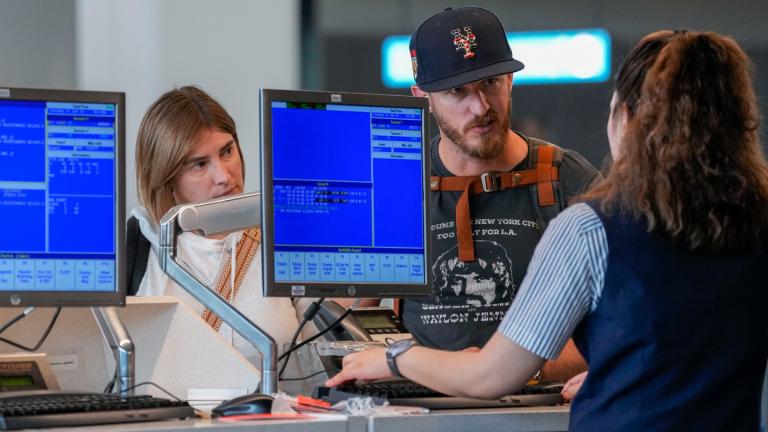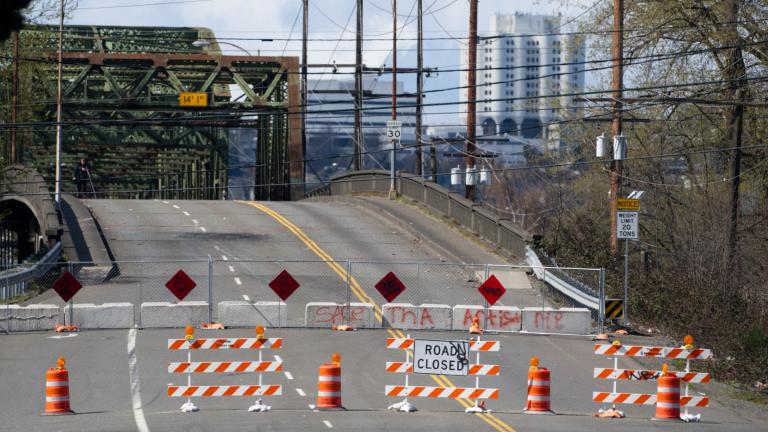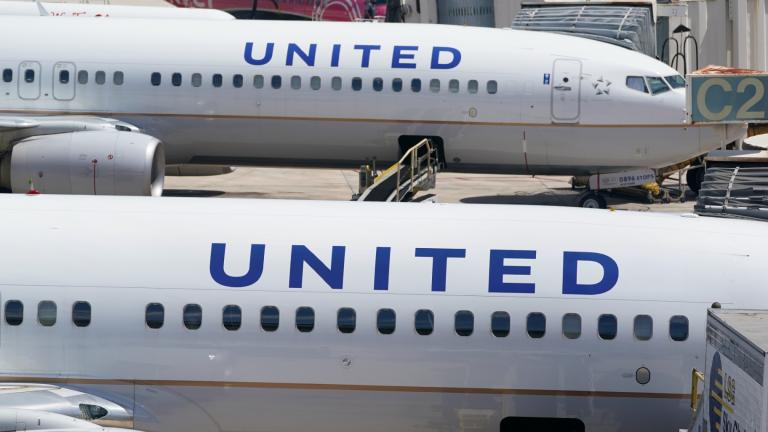Unprecedented regional coordination, $1.5 billion in new annual funding and a push to transform service and draw in more riders than ever.
Those are just some of the ambitious ideas up for debate as part of an effort to create a bold new vision for public transit in the Chicago area.
With CTA, Metra and Pace facing a looming fiscal cliff when COVID-19 relief money dries up, state lawmakers charged the Chicago Metropolitan Agency for Planning with creating a plan of action for regional public transit — which backers say is an opportunity for transformational change. According to the draft plan, lawmakers asked for “big, bold solutions.”
“The risk of inaction is just great,” said Erin Aleman, CMAP executive director. “When we think about the totality of our mobility system is here across the region, making sure that people have opportunities to get to jobs, to visit friends, to educational institutions, having a multimodal network is really important.”
Among the key principles that guided the group of civic leaders and stakeholders who worked on the plan along with CMAP staff were making transit more seamless across different modes and agencies; improving the speed and ease of bus travel; better linking Metra and CTA rail lines; and making transit safer and more accessible, both at stations and stops as well as via paratransit.
“(We were told) to be bold, to really think about how the system should be post-pandemic and not the system that we had in 2019, but that we should really be thinking about transformational change,” Aleman said.
The recently released draft plan outlines two new funding formulas, one that would create “transformational” change and one that would create “meaningful” change.
Presenting the draft plan at a public meeting of the steering committee Wednesday morning, CMAP staff urged stakeholders to back the transformational option — which would involve $1.5 billion in new annual funding.
“When we started this journey together, the conversation was about the immediate crisis that was in front of us, the fiscal cliff in 2026,” said Elizabeth Scott, CMAP principal policy analyst.
While developing the plan, Scott said, the true opportunity that began to present itself was finding “the resources needed to build the system the region truly wants.”
Staffers stressed that the plan is a starting point and the funding sources could change, but highlighted the fact that the current transit funding model dates back to the 1980s. The new funding package laid out in the draft report includes increased state funding, a $10 per car hike in the vehicle registration fee, an expanded sales tax base and cost savings and fare increases from the transit system, among other proposals.
“We know that no one solution is going to be sufficient on its own,” Scott said.
Another major change included in the draft report would be doing away with the current iterations of the three transit boards: CTA, Metra and Pace. Instead, a regional board would oversee the majority of transit and business functions while CTA, Metra and Pace committees, as well as a new paratransit/on-demand committee, would oversee transit operations and daily choices about service.
A second option would leave the three current boards intact but strengthen the role of the RTA. Some committee members expressed concern at the meeting that providing a second, less drastic option will be the one state lawmakers naturally gravitate toward.
“I think there’s a broad recognition that our transit system is valuable to our communities,” Aleman said. “Many of our communities grew up around a train station. People bought houses in those communities because they were able to access transit, and there’s small business owners that really depend on people being able to get to their jobs through that transit system. Losing a number of those assets would be a huge detriment to our region.”
The CMAP committee that oversees the plan’s development is set to meet Sept. 13 to vote on the report. The full CMAP board is scheduled to meet on Oct. 11.
Contact Nick Blumberg: [email protected] | (773) 509-5434 | @ndblumberg








